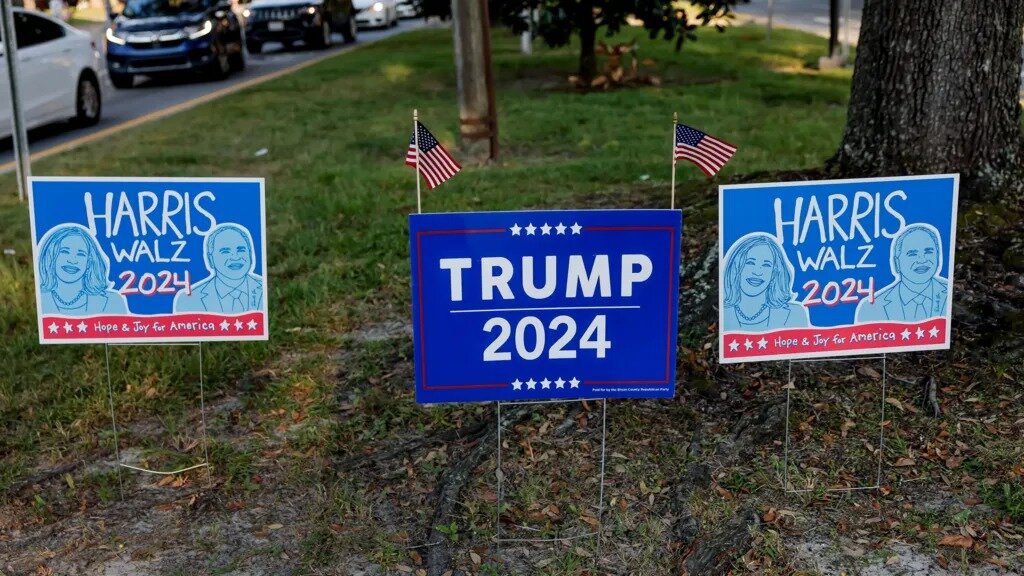While 1600 Pennsylvania Avenue may be the official address of the White House, the true road to the presidency runs through the pivotal state of Pennsylvania. Known as the largest prize in the electoral battleground map, Pennsylvania is crucial for any presidential hopeful.
Winning Pennsylvania: The Key to Victory
Elections analyst Nate Silver highlights that a candidate winning Pennsylvania has over a 90% chance of securing the presidency. Former Congressman Patrick Murphy calls it “the granddaddy of all the swing states.” With its 19 electoral votes, Pennsylvania is the cornerstone for both Kamala Harris and Donald Trump in the upcoming election.
For Democrats, securing Pennsylvania, along with Wisconsin and Michigan, plus one congressional district in Nebraska, guarantees Harris the presidency. Conversely, Republicans need to win Pennsylvania, North Carolina, and Georgia to bring Trump back to the White House. Without Pennsylvania, Trump must flip at least three states won by Joe Biden in 2020.
The Keystone State: A Microcosm of America
Pennsylvania mirrors the US demographically, economically, and politically. Transitioning from manufacturing to newer industries, it also boasts a significant energy sector due to its oil shale deposits, while agriculture remains the second-largest industry. The state’s population is predominantly white, but immigrant communities are growing, making places like Allentown majority Hispanic. The black population stands at 12%, close to the national average.
Politically, Philadelphia and Pittsburgh lean heavily Democratic, while the vast rural areas in between are Republican strongholds. Suburban areas are shifting from conservative to more liberal, creating a diverse political landscape. The state’s balance is reflected in recent elections, with Biden winning by 80,000 votes in 2020 and Trump by 40,000 in 2016. Only Barack Obama won the state by double digits in the past 40 years.
Campaign Strategies and Efforts
Both Harris and Trump are heavily investing in Pennsylvania, spending more on TV ads there than in any other swing state. Harris introduced her running mate, Tim Walz, at a Philadelphia rally and frequently visits Pittsburgh. Trump, after a close call at a Butler rally, continues his campaign efforts in Scranton and Reading.
Campaign surrogates play a critical role in reaching voters. Former Democratic Governor Ed Rendell emphasizes the importance of having dynamic speakers like current Governor Josh Shapiro rallying support. Harris aims to dominate in Philadelphia and Pittsburgh while gaining suburban votes to offset Trump’s rural advantage. She is also targeting moderate Republicans, with efforts to attract voters who previously supported Nikki Haley in the Republican primary.
Trump focuses on maximizing conservative turnout, including registering new voters and mobilizing those previously inactive. This grassroots strategy is narrowing the gap between registered Democrats and Republicans. Additionally, Trump aims to appeal to traditionally Democratic groups like blue-collar union voters and young black men.
Upcoming Political Debate and Election Uncertainties
The BBC’s “Question Time” will be broadcast from Philadelphia on October 10, featuring a local audience and a panel including BBC’s Anthony Zurcher, former Trump adviser Bryan Lanza, and commentator Mehdi Hasan.
With over 217,000 mail-in ballots already received, Pennsylvania anticipates a lengthy vote count, similar to the 2020 election. Military and overseas ballots could also play a crucial role if the race is close, potentially leading to delays, lawsuits, and recounts.
In this high-stakes election, Pennsylvania remains the keystone, potentially determining the next president of the United States. Both campaigns are bracing for a tight race and a potentially prolonged counting process, urging everyone to prepare for a drawn-out conclusion.




